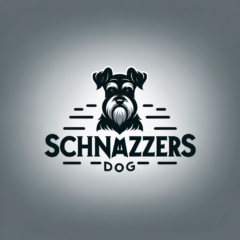- Understanding the unique nutritional needs of Schnauzer Pit Mix dogs for optimal health.
- Importance of a balanced diet tailored to energy levels and health requirements.
- Key nutrients to include in your Schnauzer Pit Mix’s diet and those to avoid.
- Advice on feeding schedules, portion sizes, and the role of treats in your dog’s diet.
- Benefits of regular vet check-ups and nutritional adjustments over your pet’s lifespan.
- Insights into the best food types – dry, wet, homemade, and raw diets.
Unlocking your Schnauzer Pit Mix’s optimal health largely hinges on mastering the intricacies of their diet. Nutrition for the Schnauzer Pit Mix is not a one-size-fits-all scenario; it’s about understanding the breed’s distinctive dietary needs and tailoring their food intake to deliver a symphony of proper nutrition that promotes a healthy, vibrant lifestyle.
A Schnauzer Pit Mix—a unique blend of a Schnauzer and an American Pit Bull Terrier—combines the traits of both breeds, and with it, their nutritional requirements morph into a specific set of guidelines for optimal feeding.
> READ MORE:
Essential Nutrition for the Schnauzer Pit Mix
At the heart of your Schnauzer Pit Mix’s health is their daily diet. It should comprise a balanced mix of proteins, fats, carbohydrates, vitamins, and minerals. The exact proportions, however, depend on several factors like age, weight, activity level, and any health issues they may face.
Protein is a critical component. It supports muscle growth and maintenance, particularly important for this mix, which may have the muscular build of the Pit Bull. High-quality animal proteins such as chicken, turkey, beef, and fish should form the foundation of their meals.
Fats are equally important, providing energy and helping with the absorption of fat-soluble vitamins. Omega-3 and omega-6 fatty acids are also vital for maintaining healthy skin and a shiny coat. Yet, it’s crucial to strike a balance to avoid weight gain.
Carbohydrates sourced from vegetables and whole grains deliver fiber and energy. However, it should be noted that low-quality fillers like corn, wheat, and soy can lead to allergies and should generally be avoided.
Vitamins and minerals are required for a multitude of physiological functions, from bone health to immune system strength. A well-crafted commercial dog food or a home-prepared diet, designed with veterinary guidance, can ensure they receive all they need.
Customizing Your Dog’s Diet
One size does not fit all when it comes to feeding your Schnauzer Pit Mix. Puppies, for instance, need more calories and nutrients to support their rapid growth compared to adults, whose energy needs level off. Senior dogs may require a diet lower in calories but higher in specific nutrients to combat the onset of age-related issues.

Monitoring your dog’s activity level and adjusting their calorie intake accordingly is key. An active dog will need a denser calorie diet than one who is more sedentary.
Additionally, the frequency of meals is a crucial consideration. Puppies might require three to four smaller meals a day, while adults typically do well with two. However, some dogs may benefit from a free-feeding approach or even an intermittent fasting regimen.
The Role of Treats in Your Dog’s Diet
Treats are a valuable training aid and a way to show affection, but they can contribute to unwanted weight gain if not managed properly. Treat intake should not exceed 10% of your Schnauzer Pit Mix’s total calorie intake for the day.
Understanding Food Types
Commercial dog foods come in dry kibble and wet food varieties, both of which have distinct advantages. Dry food may be better for dental health, while wet food can be beneficial for hydration. Homemade diets offer control over ingredients but require effort to ensure balanced nutrition. The raw diet is another option, popular for its natural approach, but it’s essential to address potential risks of bacterial contamination and nutritional imbalances with your veterinarian.
Regular Vet Visits and Nutritional Adjustments
Routine check-ups with your vet are an opportunity to fine-tune your Schnauzer Pit Mix’s diet, addressing any emerging health issues or dietary deficiencies. As your dog ages or if they develop health conditions, alterations to their diet can make a significant difference in managing these situations.
In conclusion, mastering nutrition for the Schnauzer Pit Mix is about providing a balanced diet customized to their life stage, lifestyle, and health status. It’s about being observant, adaptable, and proactive with the guidance of a trusted veterinarian. By unlocking the secrets to nutrition for the Schnauzer Pit Mix, you give your dog the key to a long, healthy, and happy life.
